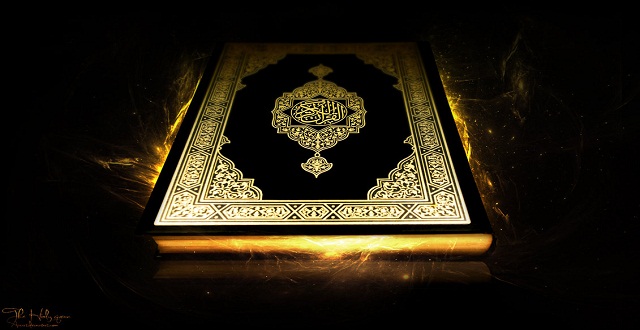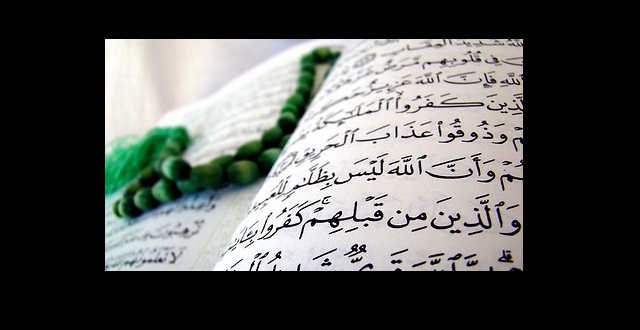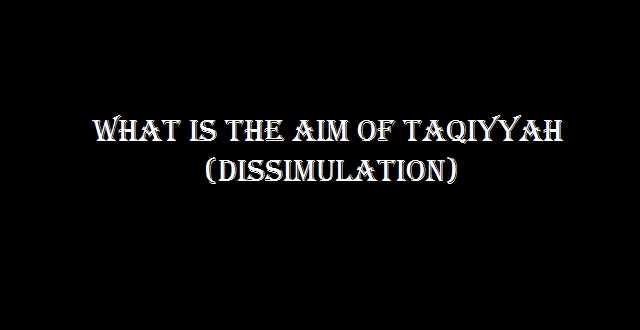
astory has been narrated in this regard, which has become popular as the story of Gharaniq. According to this story, the Noble Prophet (S) had been engaged in reciting Suratul Najm in front of the polytheists. When he had recited this verse:
أَفَرَأَيْتُمُ اللاَّتَ وَ الْعُزَّى وَ مَنَاةَ الثَّالِثَةَ الأُُخْرى
“Have you then considered the Lat and the ‘Uzza; and Manat, the third, the last?”1, the Satan caused him (S) to recite the following two sentences (which were not part of Surah) too:
تِلْكَ الْغَرَانِيقُ الْعُلْيَ وَ إِنَّ شَفاَعَتَهُنَّ لَتُرْجَى.
“They are beautiful, high-ranking birds, and their intercession is anticipated.”2
Hearing this, the polytheists were absolutely thrilled and said: (Muhammad), until today, had never spoken nicely of our Gods. At that moment the Noble Prophet (S) went into prostration and they too prostrated. All the polytheists of the Quraish were ecstatic and then went their ways, but shortly later Jibra’il descended and informed him (S): I had not brought for you those two sentences! These were of the inspirations of the Satan!
The following verse was then revealed which cautioned the Noble Prophet (S) and the believers3:
وَ مَا أَرْسَلْــنَا مِنْ قَبْلِكَ مِنْ رَسُولٍ وَ لاَ نَبِيٍّ إِلاَّ إِذَا تَمَنَّى أَلْقَى الشَّيْطَانُ فِي أُمْنِيَّتِهِ فَيَنْــسَخُ اللٌّهُ مَا يُلْقِي الشَّيْطَانُ ثُمَّ يُحْكِمُ اللٌّهُ آيَاتِهِ وَ اللٌّهُ عَلِيمٌ حَكِيمٌ
“And We did not send before you any messenger or prophet, but when he desired, the Shaytan made a suggestion respecting his desire; but Allah (s.w.t.) annuls that which the Shaytan casts, then does Allah (s.w.t.) establish His communications, and Allah (s.w.t.) s Knowing, Wise.”4
If this tradition were to be accepted, it would put a question mark over the infallibility of the prophets, even with respect to receiving the revelation, and would serve to erode away the confidence in them.
At this juncture, before we endeavour to study and critically examine the traditions, we should first separate the text of verse 52 of Suratul Hajj from the traditions fabricated in connection with it and see what the verse actually has to say:
Certainly, the text of this verse, disregarding the false annotations, not only does not taint the infallibility of the prophets but on the contrary, is one of the proofs of their infallibility. This is because, it says: Whenever they possessed a positive plan and desire (every kind of desire is called امنية, but here امنية refers to a positive and constructive scheme for the advancement of their objectives; if it was not constructive, the Satan would never seek to put whisperings into it) the Satan would attack it, but before he could exert an influence upon their will or acts, Allah (s.w.t.) would nullify the Satanic inspirations and fortify His verses.
(It should be noted that the “ف” in فَيَنسَخُ اللهُ denotes a sequence without any intervening time internal, i.e. immediately and without any time interval, Allah (s.w.t.) would annul and eliminate the inspirations and the whisperings of the Satan.)
Testifying to this statement is another verse of the Qur’an which explicitly states:
وَ لَوْ لاَ أَنْ ثَبَّتْنَاكَ لَقَدْ كِدْتَ تَرْكَنُ إِلَيْهِمْ شَيْئاً قَلِيلاً
“And had it not been that We had already established you, (and had you not been protected from deviation under the shelter of infallibility) you would certainly have been near to incline to them a little.”5
In view of the fact that verse 73 of this same chapter indicates that the infidels and the polytheists, by means of their evil insinuations, strived to turn away the Noble Prophet (S) from the Divine revelation, it becomes clear that Allah (s.w.t.) did not permit them to achieve this success by employing their diabolical suggestions.
Also, in verse 113 of Suratul Nisa, we read:
وَ لَوْ لاَ فَضْلُ اللٌّهِ عَلَيْكَ وَ رَحْمَتُهُ لَهَمَّتْ طَائِفَةٌ مِنْهُمْ أَنْ يُضِلُّوكَ وَ مَا يُضِلُّونَ إِلاَّ أَنْفُسَهُمْ وَ مَا يَضُرُّونَكَ مِنْ شَيْءٍ
“And were it not for Allah’s grace upon you and His mercy a party of them had certainly designed to bring you to perdition and they do not bring (aught) to perdition but their own souls, and they shall not harm you in any way.”
All these indicate that Allah, by means of His blessings and succour, never permitted the sinister suggestions of the devils from amongst the men and jinn to affect and influence the Noble Prophet (S), and kept him protected from all kinds of deviation.
All the above is applicable if we take امنية to mean desire, plan and scheme (since, the original roots of this word are traced to assumption, supposition and description).
However, most of the commentators have taken امنية to mean recitation, and some have even sought to corroborate this by presenting poems of Hasan ibne Thabit.6 Fakhr Razi too, in his commentary, has stated: تَمَنَّی, according to the lexicon, possesses two meanings: The first meaning is ‘the desire of the heart’ and the second is ‘recitation’.7
If we were to also take امنية to mean recitation, the meaning of the verse would be that when the divine prophets used to recite the Divine verses and sermons before the infidels and the polytheists, the devils and (those possessing satanic attributes) would insert their words amongst the words of the prophets in order to mislead the people, just as they used to do with the Noble Prophet (S) too. Verse 26 of Suratul Fussilat says:
وَ قَــالَ الَّذِينَ كَفَرُوا لاَ تَسْمَعُوا لِهٌذَا الْقُرْْآنِ وَ الْغَوْا فِيهِ لَعَلَّكُمْ تَغْلِــبُونَ
“And those who disbelieve say: Do not listen to this Quran and make noise therein, perhaps you may overcome.”
In the light of this meaning, the meaning of the next verse (53 of Suratul Hajj) also becomes clear when it says:
لِيَجْــعَلَ مَا يُلْقِي الشَّيْطَانُ فِتْـنَةً لِلَّذِينَ فِي قُلُوبِهِمْ مَرَضٌ وَ الْقَاسِيَةِ قُلُوبُهُمْ
“So that He may make what the Shaytan casts a trial for those in whose hearts is disease and those whose hearts are hard.”8
Even today, it is a common practice that when reformers of human societies deliver beneficial and constructive lectures to a section of the society, at times, those with diseased hearts raise an uproar and by means of misleading slogans and satanic expressions attempt to make light of those speeches and obliterate them by means of their futile utterances.
And this, in reality, is an examination for the people of the society and it is here that those with diseased hearts swerve away from the path of truth whereas for the Mu’mins, it becomes a means for acquiring greater awareness of the truthfulness of the prophets (a.s.). This, in turn, would make the people humble towards their invitation to the truth.
وَ لِيَعْلَمَ الَّذِينَ أُوتُوا الْعِلْمَ أَنَّهُ الْحَقُّ مِنْ رَبِّكَ فَيُؤْمِنُوا بِهِ فَتُخْبِتَ لَهُ قُلُوبُهُمْ
“And that those on whom knowledge has been bestowed may learn that the (Qur’an) is the Truth from thy Lord, and that they may believe therein, and their hearts may be made humbly (open) to it.”9
In any case, from what has been stated above, we have realized that the verse under consideration does not contain anything which is inconsistent with the infallibility of the prophets vis-à-vis errors and deviation. Rather, as has been stated before, the verse emphasizes the issue of infallibility since it says that Allah (s.w.t.) protects His prophets while they receive the revelation or when they intend to perform some other work, from the satanic inspirations and whisperings.
Now let us turn to the traditions and myths that have been mentioned in this section and deduce their worth, for things have reached such a stage that lately the devils, for the purpose of creating disturbance in connection with the Noble Prophet (S), have set about writing the book Satanic Verses.
Just as it had been previously stated, not only did the text of the mentioned verses not possess anything which contradicted the infallibility of the prophets, on the contrary, they prove and establish their infallibility. However, traditions found in some of the secondary Sunnite sources state things that are indeed strange in every respect, and therefore ought to be studied and discussed separately. These traditions, which we had presented at the start of this discussion, have been reported, sometimes, from Ibne ‘Abbas, at other times from Sa’id ibne Jubair and occasionally from some other ‘companions’ or ‘followers’.10
However, these traditions are not to be seen in any of the Shiite sources and, according to some of the Sunni scholars, these are also not to be found in any of the six Sihah of the Sunni. So much so that Muraghi, in his commentary, says: These traditions are undoubtedly a fabrication of the heretics and foreign hands, and have not been found in any of the authentic books. The fundamentals of the religion of Islam reject them and sound intellect testifies to their falsehood and incorrectness…
It is obligatory for all the scholars to disregard them and refrain from wasting their time in explaining and interpreting them, especially in view of the fact that trustworthy narrators have explicitly declared them to be lies and fabrications.11
We observe this same meaning, although in a different form, in Tafsir Jawahir of Tantawi, wherein he says: These traditions have not been mentioned in any of the Sihah like Muwatta of Malik, Sahih Bukhari, Sahih Muslim, Jami’ Tirmidhi, Sunan Abi Dawud and Sunan Nisa’i12, and it is for this reason that the book, Tafsir al-Wusul Li Jami’ al-Usul – a collection of all the interpretive traditions of the six Sihah – does not report these traditions while interpreting the verses of Suratul Najm. Thus, it is inappropriate to attach importance to them and talk about them, let alone debate about them… These traditions are just manifest lies!13
One of the testimonies which Fakhr Razi presents to prove it to be a fabrication is that in Sahih Bukhari it has been reported from the Noble Prophet (S) that when he recited Suratul Najm, the Muslims and the polytheists, the men and the jinn, all fell into prostration; and the tradition bears no mention of the story of gharaniq. Furthermore, this tradition (which has been reported in Sahih Bukhari) has been reported by several chains of narrators and not the slightest mention of the story of Gharaniq meets the eye.14
Not only the abovementioned commentators, but even others such as Qurtubi in his commentary al-Jami’, Sayyid Qutb in his commentary Fi Dhilal al-Qur’an, other Sunni scholars and all of the distinguished and celebrated Shi’ite scholars have branded this tradition as a fabrication and have attributed it to the enemies of Islam.
As such, it is not strange that the enemies of Islam, especially the inimical Orientalists, have publicized this tradition and reported it with a great deal of embellishment. We have also witnessed that recently they have forced a writer, coming from an evil lineage, to author a book under the title of The Satanic Verses and, by means of extremely derogatory and vile expressions in the course of a fictitious and make-believe story, not only question the sanctities of Islam but also exhibit sacrilege towards the great prophets (like Ibrahim), who are looked upon with great reverence by all the Divine religions.
And again it is not strange that the English text of this book was translated with astonishing swiftness into different languages and distributed all over the world. And when Ayatullah Khomeini R issued his historical fatwa declaring the author, Salman Rushdie, to have become an apostate and thereby deserving to be compulsorily killed, there arose in Rushdie’s favour, on the part of the colonial governments and enemies of Islam, a tidal wave of support, so great that the world had never seen the like of it before.
This amazing phenomenon revealed the reality that Salman Rushdie was not acting alone, and the issue is much more than just authoring an anti-Islamic book. It is, in fact, a conspiracy that has been chalked out by the Western colonial powers and the Zionists with the objective of bludgeoning Islam – a conspiracy which they support seriously and in great earnest.
But the firm resistance and perseverance of Ayatullah Khomeini (r.a.) in his fatwa, the continuation of his policy on the part of his successors and the global acceptance of this historical fatwa by the general Muslim public served to foil the conspiracy of the conspirators.
And until this date, as we write this, the author of the mentioned book leads his life in total concealment and is scrupulously protected by the colonial governments; it appears that he shall be forced to lead the rest of his life in this fashion and probably he might be killed by his very mentors to extricate themselves from this humiliation.
Thus, the ‘creating cause’ for this fabricated tradition also acts as its ‘preserving cause’, i.e. a conspiracy was initiated on the part of the enemies of Islam and now, after more than a thousand years, another group from amongst them strive to continue this conspiracy, although on a much wider scale.
As such, we do not deem it necessary to present, for this tradition, explanations and justifications which, for example, appear in great detail in the commentary Ruhul Ma’ani and concisely in other commentaries. This is because a tradition, which is fundamentally rotten and which has been emphatically branded as a forgery on the part of eminent Islamic scholars, does not need to be explained.
However, we only wish to present some points which shall provide some more clarification:
The relentless, uncompromising and perpetual fight of the Noble Prophet (S) against idolatry, from the beginning of his invitation (to Islam) until the end of his life, is a fact which is not concealed from friend and foe alike.
The most important issue for which he was never willing to compromise and exhibit flexibility was this very issue. Despite this, how could he have possibly commended and praised the idols of the polytheists by such words, and spoken of them in good light?
The teachings of Islam declare that the only sin that can never be forgiven and overlooked is polytheism, and it is for this reason that Islam has regarded the destruction of centers of idolatry, whatever the consequence, as obligatory, and the entire Qur’an is a testimony to this fact. This very fact is clearly indicative of the fabricated nature of the tradition of Gharaniq, in which idols have been commended!
Apart from this, those who have fabricated the story of Gharaniq have overlooked the fact that a cursory reading of the verses of Suratul Najm would be sufficient to prove this myth to be false, and reveal that there exists no harmony between the commendation of the idols by means of the sentence:
تِلْكَ الْغَرَااَنِيقُ الْعُلْيَ وَ إِنَّ شَفاَعَتَهُنَّ لَتُرْتَجَى.
and the verses situated before and after it. This is because, in the beginning of this very chapter, it has been explicitly stated that the Noble Prophet (S) does not speak of his own desire and whatever he says in connection with the Islamic beliefs and laws, is Divine revelation:
وَ مَا يَنْطِقُ عَنِ الْهَوى إِنْ هُوَ إِلاَّ وَحْيٌ يُوْحى
“Nor does he speak out of desire. It is naught but revelation that is revealed.”15
The Qur’an also emphasizes that the Noble Prophet (S) shall never go astray from the true path and never lose himself:
مَا ضَلَّ صَاحِبُكُمْ وَ مَا غَوى
“Your companion does not err, nor does he go astray.”16
What could be greater deviation than interpolating speeches of polytheism and praises of idols within the verses of monotheism? And as for speaking of one’s desire, what could be worse than adding satanic words:
تِلْكَ الْغَرَااَنِيقُ الْعُلْيَ
to Allah’s speech?
Interestingly, the verses following the verses presently under consideration explicitly criticize and denounce the idols and the idol-worshippers and say:
إِنْ هِيَ إِلاَّ أَسْمَآءٌ سَمَّيْتُمُوهَا أَنْــتُمْ وَ آبَاؤُكُمْ مَا أَنْزَلَ اللٌّهُ بِهَا مِنْ سُلْطَانٍ إِنْ يَتَّبِعُونَ إِلاَّ الظَّنَّ وَ مَا تَهْوَى الأََنْفُسُ
“They are naught but names which you have named, you and your fathers; Allah (s.w.t.) has not sent for them any authority. They follow naught but conjecture and the low desires which (their) souls incline to; and certainly the guidance has come to them from their Lord.”17
Which intellect would be given to believe that a wise and intelligent person, occupying the rank of prophethood and in the process of reciting Divine revelation would, in one sentence, praise the idols while two sentences later deprecate them with such vehemence and intensity? How can this blatant contradiction in two consecutive sentences be explained and justified?
Here we have to acknowledge that the cohesion of the verses of the Noble Qur’an are such that any impure addition made to it on the part of inimical and tendentious individuals is thrown out, and they clearly reveal it to be a patch which is inharmonious and an addition that is unrelated. This is the fate which the tradition of Gharaniq suffers from amidst the verses of the Noble Qur’an.
At this juncture, one question remains to be answered and that is: How is it that an issue, so baseless and unsubstantiated, has come to acquire such popularity?
The answer to this question is not very difficult and intricate; the popularity of this tradition is, to a great extent, indebted to the efforts of the enemies of Islam, who imagine that they have managed to lay their hands on a good pretext to blemish the infallibility of the Noble Prophet (S) and the authenticity of the Noble Qur’an.
Thus, the reason for its popularity amongst the enemies is clearly comprehended. However, its popularity amongst the Islamic historians, according to some of the Islamic scholars, stems from the fact that many of the historians are always on the lookout for new, exciting and exceptional issues – however much there may exist a question mark over their historical authenticity – so that they can make their books more interesting and tumultuous.
And since the myth of gharaniq is unprecedented in the life of the Noble Prophet (S), they, without examining the weakness of its chain of narrators and the baseless nature of its contents, record it in their books of history and traditions; subsequently, others dwell upon it with the intention of subjecting it to a critical examination and study.
Conclusion
From what has been discussed above, it becomes plain and clear that not only do the verses of the Qur’an not contain anything which contradicts the infallibility of the prophets, rather, these very verses, which have been imagined to be contradicting it, contain clear indications that accentuate the rank of infallibility for them.18
————————————————————————-
1. Suratul Najm (53), Verse 19, 20
2. غرانيق is the plural of غرنوق – a kind of water bird that is white or black in colour. There are other meanings too that have been mentioned (for this word) (as quoted from Qamus al-Lugah).
3. Most of the distinguished commentators have reported this tradition although with a little difference, and have subjected it to a critical examination.
4. Suratul Hajj (22), Verse 52
5. Suratul Isra’ (17), Verse 74
6. تمنی کتاب الله اول ليلة و آخرها لاقی حمام المقادر.
In Taj al-‘Arus, the commentary of the book Qamus, and also in the actual text of the book Qamus, تمنی الکتاب has been stated to mean تلاوة الکتاب (recitation of the book). Then, quoting from Azhari, it says: تلاوة has been called امنية because whenever the reciter reaches a verse of mercy, he desires (Allah’s) mercy and whenever he reaches a verse of chastisement, he desires deliverance from it. However, the book Maqayis al-Lughah is of the opinion that this word has been made to mean تلاوة because it is a kind of measurement and placement of every verse it is own place.
7. The Commentary of Fakhr Razi, vol. 23, pg. 51
8. Of course, the interpretation of the last verse, on the basis of the first meaning, is not without its objections. This is because the satanic inspirations in the souls of the Prophets, despite the fact that they were immediately eliminated and annulled by means of divine succor, cannot be a means of examination for the hypocrites and those possessing diseased hearts. This is because these whisperings do not have any external manifestation and appearance, rather, they are ephemeral inspirations inside the souls of the Prophets.
Except if it is said that the meaning is that when the divine Prophets desired to implement their desires and plans, in practice, the devils engaged themselves in sabotaging and whispering diabolical suggestions – this being the appropriate occasion for trials and examinations. And with this explanation, the coherence and relationship between the three verses (52, 53 and 54 of Suratul Hajj) is preserved and maintained.
Strangely enough, some of the commentators have presented various interpretations and possibilities for the first verse without endeavouring to preserve the harmony between it and the two subsequent verses.
9. Suratul Hajj (22), Verse 54
10. For more information regarding the chains of narrators of these traditions in the books of the Sunnis, refer the book al-Durr al-Manthur, vol. 4, pg. 366-368, under verse 52 of Suratul Hajj.
11. Tafsir Muraghi, vol. 17, pg. 130, under the abovementioned verse.
12. It should be noted that the book Muwatta of Malik is not regarded as one of the six Sihah books. The book Sunan Ibn Majah is the sixth book of the Sihah.
13. Tafsir Jawahir, vol. 6, pg. 46
14. The commentary of Fakhr Razi, vol. 23, pg. 50
15. Suratul Najm (53), Verse 3,4
16. Suratul Najm (53), Verse 2
17. Suratul Najm (53), Verse 23
18. Tafsir Payam-e-Qur’an, vol. 7, pg. 164









